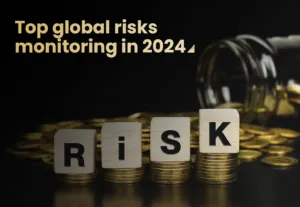How would you rate your confidence in the global economy on a scale of one to ten? Your response is likely influenced by a variety of factors: age demographic, socioeconomic status, political leanings, governmental policies, or even which news outlets are suggested to you based on your social media’s algorithm.
A recent IPSOS survey, conducted from 20th October to 3rd November 2023, reveals a world divided in its economic optimism. Half of the respondents foresee a stronger global economy in 2024, suggesting a cautiously optimistic outlook.
Asia Pacific’s Confidence
Notably, the epicentre of this optimism is in the Asia Pacific, where seven out of the ten most confident countries reside. India (85%), Indonesia (82%), and China (82%) top the list, followed closely by the Philippines (74%), Thailand (68%), Malaysia (62%), and Singapore (59%).
In the context of Malaysia, the nation boasts a highly digitally literate population, with 96.8% enjoying internet connectivity across various devices. Such widespread access not only links Malaysians to the latest in technology and industrial progress but also to the pulse of global developments through popular social media channels such as Instagram, YouTube, and TikTok, among others.
Contrasting Asian Views
While Malaysia and several neighbouring countries maintain a positive outlook for the world’s economy in 2024, the sentiment isn’t as optimistic in South Korea and Japan. Only 33% of South Koreans and 30% of Japanese are hopeful about the global economic climate for the year. This reservation may stem from multiple factors, including Japan’s ongoing economic challenges. There is also a significant move by Japanese retail investors — divesting 660 billion yen from ESG mutual funds, a move that may reflect broader concerns about the country’s economy.
Confidence in the global economy often correlates with demographic factors, including age and the degree of international exposure one seeks. Japan and South Korea, for instance, face demographic challenges with aging populations — nearly 30% of Japan’s and 18% of South Korea’s residents are 65 or older, based on data from Statista. This demographic shift could potentially influence economic perspectives within these nations.
Adapting for the Future
Whether the view is optimistic or cautious, it’s clear that we live in a world where interconnectedness is a fact of life. Our ability to tap into the global flow of information can significantly impact the success of our businesses.
Businesses aiming to stay competitive and forward-moving must effectively navigate the wealth of information and new ideas emerging from an ever-more connected global market. The widespread use of the Internet and social media plays a pivotal role in this, offering both challenges and opportunities for growth and innovation.
At PEGH, we are committed to assisting local enterprises, like Scanwolf Corporation Berhad and Actcelerate International Group, to integrate ESG and sustainability into their operations. This is a focus increasingly important to the conscientious spending habits of Millennials and Gen Z. By absorbing and applying the best practices from around the globe, we believe we can channel the global economy’s dynamic capabilities to Malaysia’s benefit.





